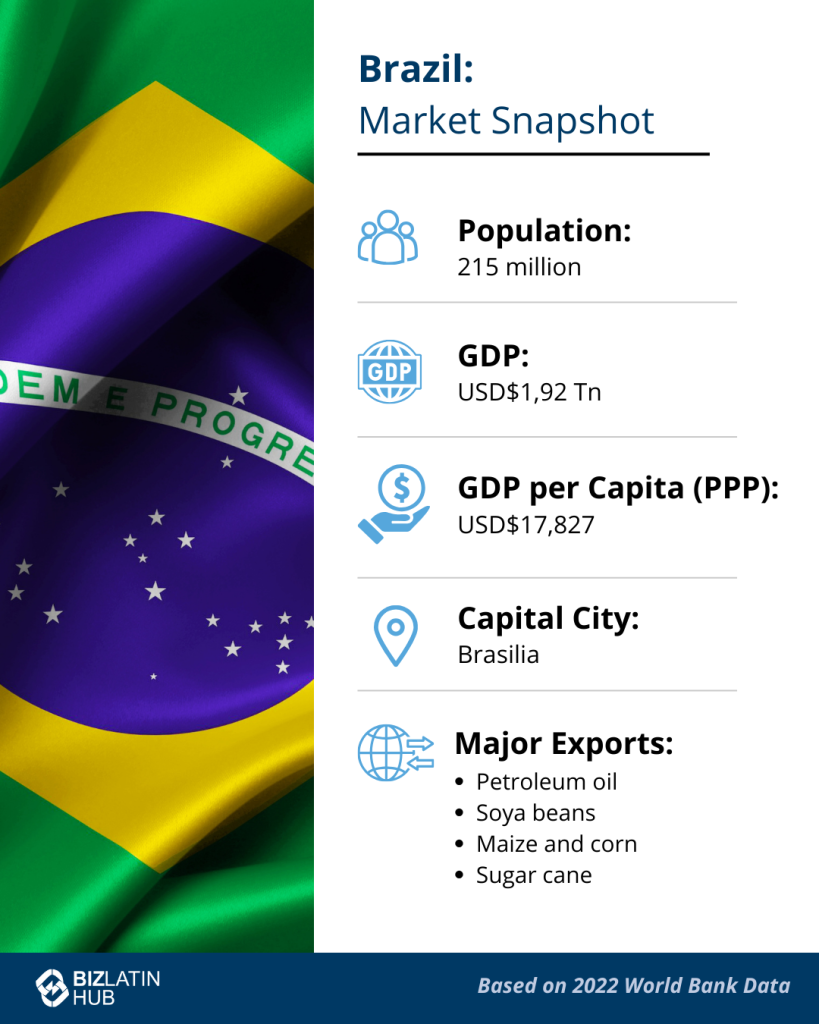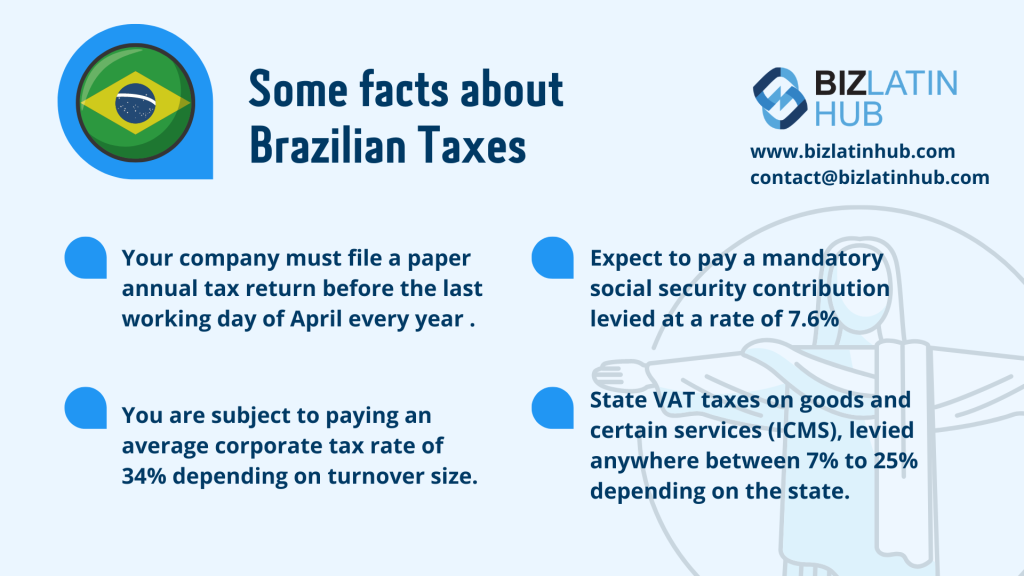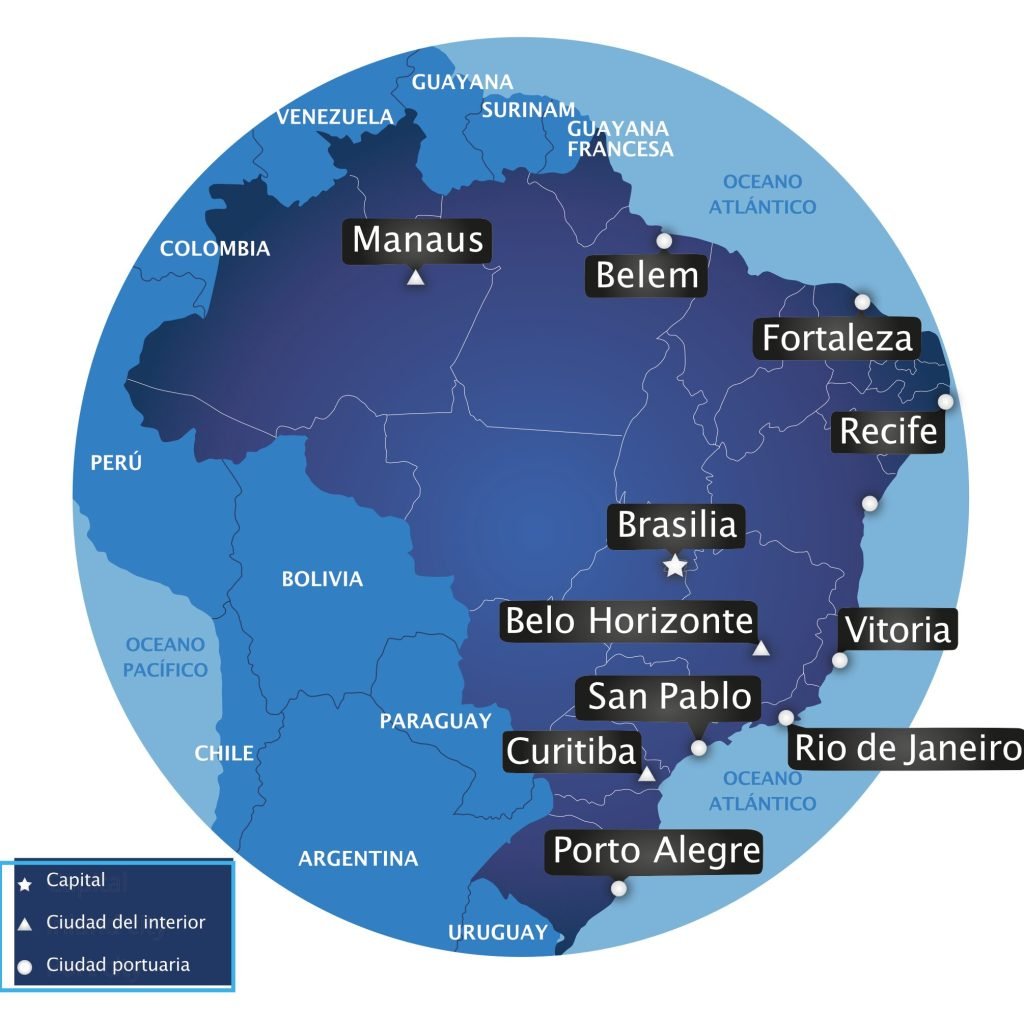
With South America’s biggest economy by GDP and an enormous internal market, Brazil attracts a lot of attention from foreign investors. As the country continues to grow and develop its economy, it is increasingly falling into line with international standards. This includes measures such as identifying a UBO in Brazil.
A UBO in Brazil is an Ultimate Beneficiary Owner, meaning someone who gains financially from the business. These people must be registered locally with the National Register of Legal Persons (CNPJ). If you’re considering LLC formation in Brazil, you will need to take these regulations into account.
That means it makes sense to partner with a local specialist such as Biz Latin Hub. We have a local office that can handle compliancy with the regulations for UBO in Brazil, as well as another 17 countries across Latin America and the Caribbean.
What is UBO in Brazil?
The country is one of the world leaders, with disclosure of UBO in Brazil going back to 2018. The relevant legislation, Instrucao Normitiva RFB 1,634, was actually proposed in 2016 and now applies to most companies in the country. There are exemptions for disclosure of UBO in Brazil, most notably for publicly traded companies.
An ultimate beneficiary owner (UBO) in Brazil is defined as a person who fulfils one or both of:
- A: a natural person who ultimately, directly or indirectly possesses, controls or significantly influences the entity
- B: a person on whose behalf a transaction is conducted.
The term significant influence is usually defined as holding 25% of the capital, either directly or indirectly. It can also be defined as holding control (directly or indirectly) of the board or the power to elect a majority of administrators.
While some of these definitions are clear, others are a little harder to identify. If in doubt, contact a local lawyer to make sure that you are receiving the best possible advice for your situation. As the definitions are broad, there is room for some interpretation of the law.
Why does Brazil check UBO?
UBO checks are becoming increasingly standard globally and in Latin America and the Caribbean especially. This is of particular importance for international businesses who may also be doing business in other territories. Brazil is a particularly forward looking country in this regard, having started making moves on the issue nearly a decade ago.
Money laundering from illegal gangs is often disguised by routing cash flows through complex bureaucratic systems, for example. Another area of interest for the government is confirming that anyone who has been barred from company ownership is not in fact exercising control over a business.
As a member of the international Financial Action Task Force (FATF), the country has certain responsibilities to uphold. Identifying who may be a UBO in Brazil is a central plank of that strategy. Companies that work internationally will particularly want to avoid triggering the Patriot Act in America, alongside other legislation such as the UK Bribery Act, FCPA and others.
By following well-established international norms, Brazil offers a sense of investor confidence for foreign firms or individuals that may want to operate in the country. With clear proof that you are not connected to illegal organizations, you can rest assured that your Brazilian operations will not imperil other areas of your global business.

How can you stay compliant with UBO in Brazil?
You must present full and up to date fiscal information to the CNPJ. Failure to do this means suspension from all activities in the country and any bank accounts frozen. While there is no direct fine to pay, it is impossible to operate without declaring your UBO in Brazil.
This is best done with a competent and well-regarded local lawyer, specifically someone with solid and fully up-to-date information on the most recent implementation of the law. It will help if this person is familiar with Brazilian bureaucratic standards.
This is especially true of companies that operate in a range of territories, particularly if they have multiple tax responsibilities. Large companies with complex bureaucracy across regions may find it difficult to identify a UBO in Brazil.
You will need to make sure that you keep up to date records for anyone that could be considered a UBO in Brazil. Anything not written in Portuguese must have an officially recognized translation. This includes, but may not be limited to, the following:
- Copy of ID and personal information
- Place of residence
- Notarized and apostilled copies of company information
- Photos of key figures in the company

FAQs on UBO in Brazil
These are the questions we most often field from our clients on issues connected to UBO in Brazil.
Yes, 100% ownership is permitted under Brazilian law.
You will need to make sure that you keep up to date records for anyone that could be considered a UBO in Brazil. Anything not written in Portuguese must have an officially recognized translation. This includes, but may not be limited to, the following:
Copy of ID and personal information
Place of residence
Notarized and apostilled copies of company information
Photos of key figures in the company
An ultimate beneficiary owner (UBO) in Brazil is defined as a person who fulfils one or both of:
A: a natural person who ultimately, directly or indirectly possesses, controls or significantly influences the entity
B: a person on whose behalf a transaction is conducted.
The term significant influence is usually defined as holding 25% of the capital, either directly or indirectly. It can also be defined as holding control (directly or indirectly) of the board or the power to elect a majority of administrators.
To avoid international non-compliance with issues such as money laundering, to fulfil its obligations under FATF and to provide investor confidence
There is no fine, but you can have all operations in the country suspended until you register correctly.
Biz Latin Hub can keep you compliant with UBO in Brazil
Identifying UBO in Brazil can be complex and requires due diligence to ensure the success of market entrants. Biz Latin Hub can ensure your company is fully compliant with local regulations and can operate with minimal delay.
We offer a range of market entry and back-office services to support your commercial success in Brazil. The Biz Latin Hub team is built of well-experienced, bilingual, and knowledgeable accountants and lawyers striving to offer premium service.
Our team of local and expatriate professionals offers responsive, tailored legal and accounting solutions in Brazil where procedures tend to be lengthy and complex. If you want to set up a company, then Biz Latin Hub can be your professional partner.
Reach out to our team of local experts for advice and comprehensive market services.
Learn more about our team and expert authors.






